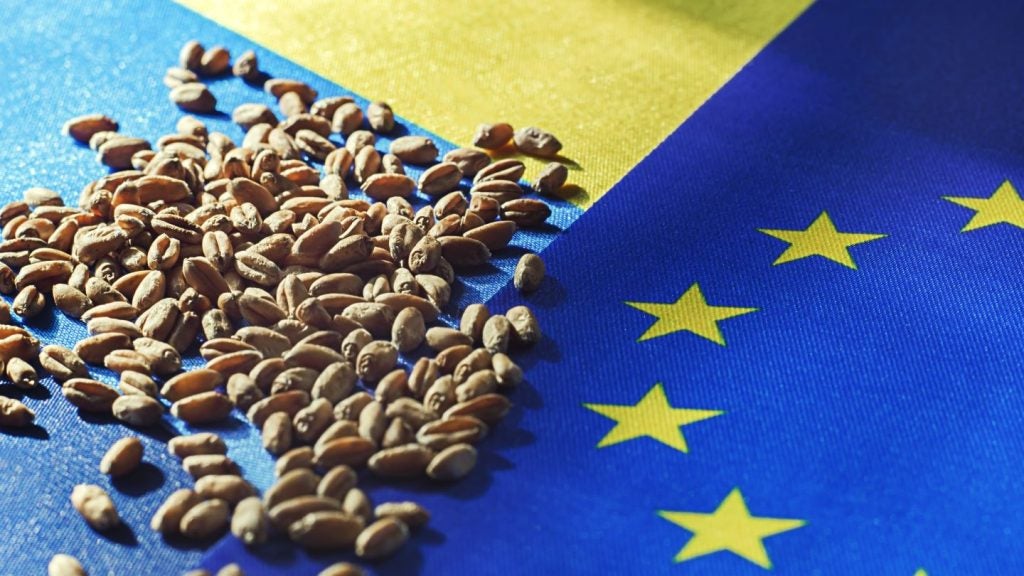The EU and Ukraine have reached an agreement in principle on a new trade deal that would replace temporary arrangements put in place by Russia's invasion.
In June 2022, as hostilities hit regular shipping routes from the Black Sea, the EU temporarily suspended duties and quotas on certain agri goods from Ukraine.
However, the measures faced some opposition in EU member states close to Ukraine that feared the impact on their farming sectors of imports cheaper products. By 2024, the EU had agreed to limit the import of grains from Ukraine.
According to Maroš Šefčovič, the EU Commissioner for Trade and Economic Security, the new deal, announced yesterday (30 June), “sets out a long-term, predictable and reciprocal framework, benefiting exporters, businesses and farmers on both sides”.
The EU said the deal "fully considers the sensitivities of certain EU agricultural sectors and stakeholders" and would lead to "only modest increases" in market access for goods including wheat, maize, sugar and poultry.
Under the terms of the agreement, Brussels will increase quotas for foodstuffs including butter and oats.
Ukraine will open its market to EU poultry, pork and sugar.
The EU said the improved access for Ukraine is conditioned on the "gradual alignment" of Ukraine to the bloc's standards on animal welfare, use of pesticides and veterinary medicines.
EU farm lobby group Copa-Cogeca gave a cautious response to the new agreement.
"While we support Ukraine’s economic resilience and its European future during this difficult time, at this stage, considering the limited information provided, we can only hope that the final outcome of the agreement announced today fully considers and respects the sensitivities of EU farmers and manufacturers," a statement issued by Copa-Cogeca read. "In that sense, we urge the European Commission to make all details of this agreement available as soon as possible to the public."
The statement, which was also issued on behalf of poultry, sugar and maize industry associations in the EU, added: "While we look positively on some aspects presented today concerning the alignment of standards and safeguard mechanisms, including also the impact on member state level, we remain concerned on the outcome on the protection of sensitive sectors and the potential exclusion of some productions, such as barley or ethanol, from such mechanisms."









